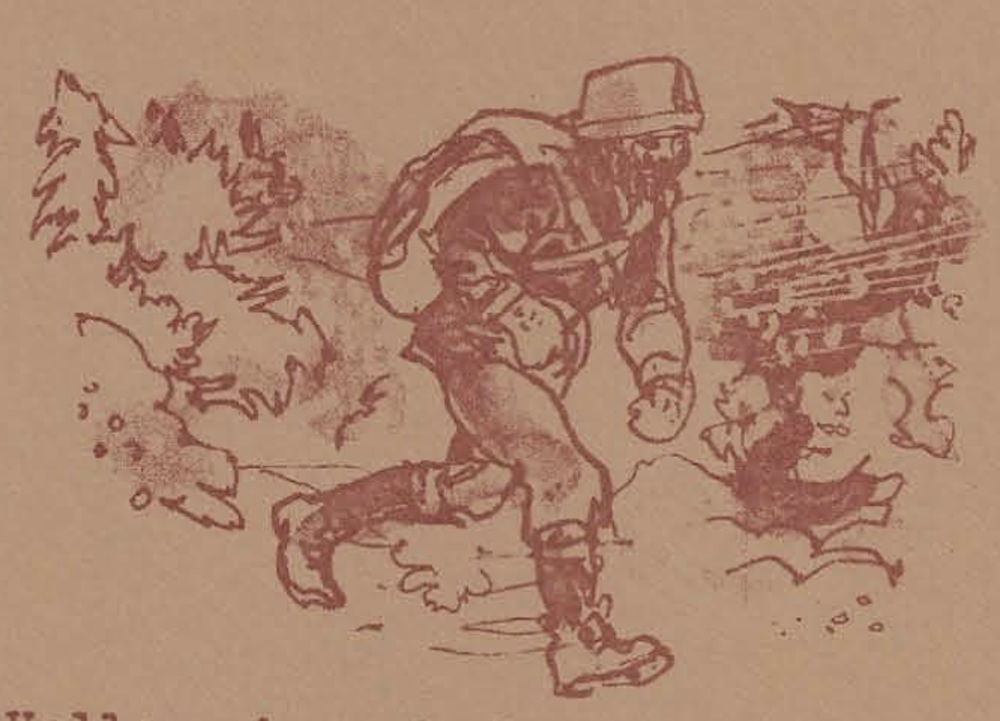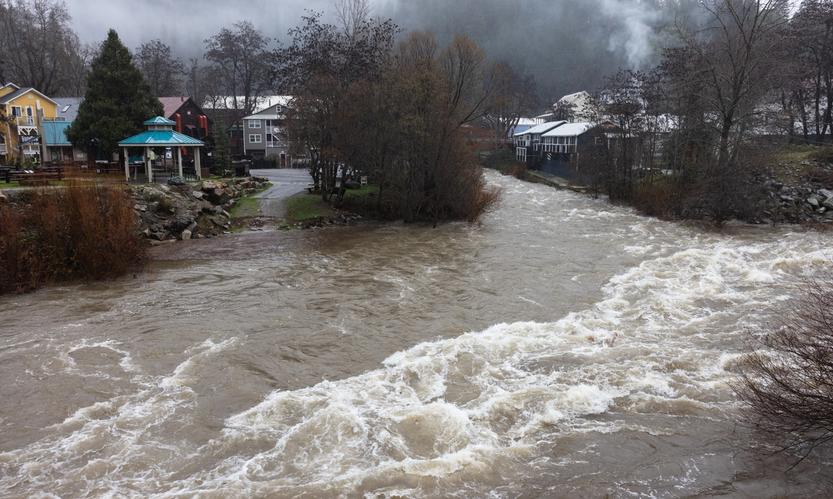Early Annals of Downieville and Vicinity — Part 2
February 9, 2023
Reprinted with permission by the Sierra County Historical Society from The Sierran of August 1970, Vol 2., No.2 Last week's edition left readers with the news of a prospector bringing news of a new source of rich diggings in an area north of Downieville and of a small group packing up immediately to pursue the promise of finding goldd nuggets. As secret as we thought ourselves, we were scarcely up the hill, and in the act of packing the animals with our blankets, etc., when we discovered three negro men and two whites coming up the hill. It was too late to try and hide; so our plan was made
up instantly to compel them to swear not to divulge where we went to. This they readily agreed to. The white men were Wm. McKenzie and Jas. E. Dow, the negroes were named Leroy--a yellow man,--Wm. Taylor, and the last I never knew his name. On the evening of the 14th October, we arrived at our Camp, and the next morning began prospecting our claim. The writer panned out the first pan of dirt, which yielded an ounce and a half, after removing only three inches of dirt; only a few inches from
where Moore had left off. Moore had taken out several thousand dollars in this claim, before we of Downie's party took up the ground. Downie's party consisted originally of Wm. Downie, Charles Thompson, Michael Devermy, a Dutch boy named Henry
Winters, Thomas Jamison, and the writer. The first day’s work yielded $950. In the first three buckets of dirt rocked out in a small cradle, the yield was $240, and in the third riddle full there was 14 ounces which would not pass through it; consisting
of four pieces; one of which weighed exactly eleven ounces troy. The proceeds of this day's work were paid out to a packer for provisions, and another load ordered in about two weeks. After our cabin was built, he returned and we paid him $1,500 for
his load. In going out of the creek he lost most of his train in a heavy snow storm. Onion Valley, in the meantime, had been growing rapidly and a large town was laid out; but the grizzlies now began to trouble the settlers and a supply of that kind of meat was obtained from two of those agreeable visitants about this time. Pilot Peak
now was covered with snow, which continued to accumulate on the hills, and from this until late in the spring of 1851, continued to hide their heads. About Christmas, the town had increased to about 1,000 or 1,500 inhabitants; mostly gamblers, storekeepers
and miners, waiting the snow to disappear, in order to come into Poorman's Creek, Dixon, and Nelson Creeks. Another considerable settlement had sprung up on the Downieville trail, at Grass Valley, and on the opposite side of the ridge at Rabbit Creek,
now Laporte, situated on the dividing ridge between the Yuba and Feather rivers, and on the trail from Bidwell's Bar to Poorman's Creek. Rabbit Creek was so named from the immense numbers of rabbits about, and named by the miners, who were weather
bound there, and who found excellent diggings on that creek. About this time a Spanish train was snowed in, between Grass Valley and Onion Valley, and a party of three who had left Poorman’s Creek, were lost in the snow whilst trying to find it,
to procure provisions. One of the party was frozen to death, the other two reached Kelly & Osbourne’s store in Grass Valley, in a deplorable state, but neglected to mention they had left their partner behind, for two whole days; and it was not
until the third day that news reached Poorman’s Creek of the fact. A relief party volunteered to go out immediately; signals were agreed upon and the party set out. After being out two whole days the party returned, leaving behind several on the
hill, unable from cold to come in. Another party was started and packed them in, in blankets, to Downie’s cabin, where Dr. Bacon of the Butte company attended to their sufferings, and saved them. About the first day of January 1851 Mr. Grimes died, partly of dysentery and partly of scurvy; and was buried on the left hand bluff, below the New Jersey claim. This was the first death amongst the pioneer settlers of this creek. Dr. Bacon did all he
could for him; but unfortunately had but a small stock of medicines. Our own medicine stock was mostly lost in the hurry of packing over. About the eighth of Jan. 1851, the writer and a man named Black, butchered the first head of cattle ever butchered above Downieville. Beef readily sold at $1 per pound in pieces not less than 40 or 50 pounds each. I forgot to mention that Major Wm. Downie, on Christmas morning, made and hoisted the first American flag, under the statue to the stars and stripes from all the miners in the creek, with rifles and pistols. About the middle of January, 1851, the miners in Poorman’s Creek having increased to 76, a meeting was called to name the creek, and other purposes. Amongst us, as there had been considerable robbing going on as well as gambling, they passed stringent
vigilance laws against highway robbery; and no gambler who DEALT at any game, was allowed to hold a claim. Mining laws were also passed at the same time. Next week readers will be treated to the more news from the early days of "over north" gold mining. Artwork provided by Norma White of Loyalton
Artwork provided by Norma White of Loyalton
Featured Articles

Storms Bring Heavy Rainfall and Local Disruptions →
December 22, 2025
Sierra County faces power outages and water issues amid heavy rainfall and storm warnings.
215 Animals Seized for Cruelty from Grass Valley Property →
December 22, 2025
Human Remains Found Near South Yuba Bridge in March Identified →
December 17, 2025
Transfer Station Burn Suspended After Community Concerns →
December 16, 2025
Sierra Hardware Plans Extensive Repairs After Flood Damage →
December 8, 2025